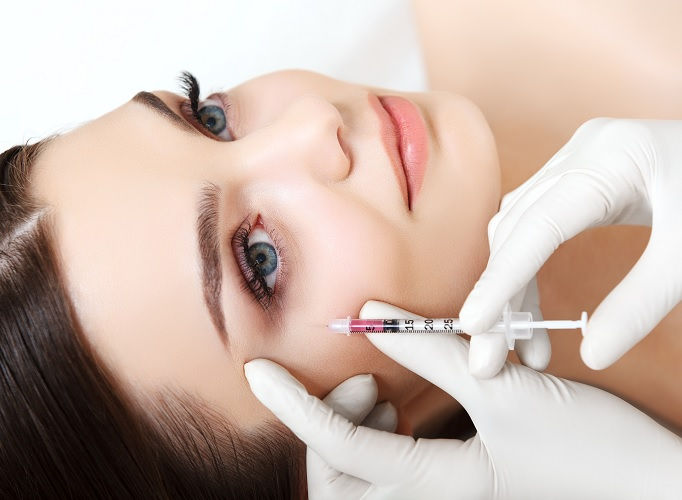Is Melasma Curable? Here’s What Dermatologists in Islamabad Say
- Binish Khan
- Jul 9
- 4 min read
If you’ve been struggling with stubborn brown or grayish-brown patches on your cheeks, forehead, or upper lip—especially after sun exposure or pregnancy—you’re not alone. These patches are likely melasma, a very common but often misunderstood skin condition that affects both women and men. While it isn't dangerous, melasma can take a significant toll on a person’s confidence, especially when it’s hard to treat with regular creams or at-home remedies.
In Islamabad, where strong sunlight, hormonal changes, and environmental stressors are common triggers, melasma cases are increasingly seen in dermatology clinics. But one pressing question remains on everyone’s mind: Is melasma curable?
To help clear the confusion, we spoke with leading Melasma expert in Islamabad to understand the realities of this condition, the effectiveness of current treatments, and what long-term care really looks like. If you're looking for medically backed insights and a path to clearer skin, you're in the right place.

Understanding Melasma: What Makes It So Persistent?
Melasma is a chronic skin condition marked by symmetrical patches of hyperpigmentation. It’s commonly seen on the face, particularly on the cheeks, forehead, nose bridge, and above the upper lip. While it can affect anyone, melasma is more common in women, especially those with medium to darker skin tones and a history of hormonal fluctuations.
What makes melasma so difficult to deal with is that it’s not caused by just one factor. Instead, it results from a complex mix of:
Hormonal changes (pregnancy, birth control, hormone therapy)
UV exposure
Genetic predisposition
Heat and infrared radiation
Certain medications or cosmetic products
Because the triggers are ongoing and often unavoidable, melasma tends to come back—even after successful treatment—if it's not managed properly.
Is Melasma Curable?
This is the most common question dermatologists hear. And here’s the honest, expert-backed answer:
Melasma is not curable in the traditional sense, but it is highly manageable.
Think of melasma like a chronic condition, such as acne or eczema. With the right approach, it can be significantly lightened, controlled, and prevented from worsening. However, because it's tied to hormonal and environmental triggers, there's always a possibility of recurrence, especially if sun protection is neglected or treatments are discontinued abruptly.
According to top dermatologists and melasma experts in Islamabad, the focus should not be on a "miracle cure" but rather on long-term management using customized treatments, consistent sun protection, and lifestyle changes.
What Do Dermatologists in Islamabad Recommend?
Thankfully, dermatology in Islamabad has advanced significantly over the years, and there are now several scientifically proven treatments available to manage melasma effectively. Here's what specialists typically recommend:
1. Topical Prescription Medications
Dermatologists usually begin treatment with prescription creams containing:
Hydroquinone
Tretinoin
Corticosteroids
Azelaic acid
Tranexamic acid (topical or oral)
These work to reduce melanin production and promote healthy skin turnover. However, they must be used carefully under supervision to avoid side effects like skin thinning or irritation.
2. Chemical Peels
Light to medium-depth chemical peels using ingredients like glycolic acid or salicylic acid can help exfoliate the upper layers of the skin and reduce pigmentation. These are especially helpful when combined with topical treatments.
3. Laser and Light-Based Therapies
Dermatologists in Islamabad now offer advanced laser treatments such as:
Q-switched Nd:YAG laser
Fractional CO2 laser
Low-energy IPL (Intense Pulsed Light)
These devices target melanin deposits deep within the skin. However, not all lasers are suitable for every skin type, so proper evaluation is crucial before starting laser therapy.
4. Microneedling with PRP
Microneedling creates controlled micro-injuries that stimulate collagen production and help fade pigmentation. When combined with Platelet-Rich Plasma (PRP), this treatment supports skin healing and regeneration.
5. Sun Protection
This cannot be stressed enough: Sunscreen is your best defense against melasma. A broad-spectrum sunscreen with SPF 50+ should be applied every single day—even on cloudy days or when indoors. Without sun protection, even the best treatments may fail to deliver long-lasting results.
How Long Does It Take to See Results?
Melasma requires patience. Unlike other pigmentation issues that may clear up in weeks, melasma takes longer. Most patients begin to see visible improvement within 4 to 8 weeks, with full results taking anywhere from 3 to 6 months depending on the severity and depth of the pigment.
It’s also common for dermatologists to cycle through different treatment combinations to find what works best for your unique skin type and melasma pattern.
What Increases the Risk of Recurrence?
Even after successful treatment, melasma can return. The most common triggers for recurrence include:
Skipping sunscreen
Reintroduction of hormonal medications
Heat exposure (sauna, cooking, steam)
Use of harsh cosmetic products
Pregnancy or hormonal changes
That’s why dermatologists in Islamabad emphasize maintenance plans that include gentle skincare routines, antioxidant serums, and regular check-ins.
How to Choose the Right Dermatologist in Islamabad?
Because melasma is a sensitive and recurring condition, it's essential to get help from a qualified skin specialist—someone who understands the specific needs of your skin and lifestyle. The right dermatologist will:
Accurately diagnose the type and depth of your melasma
Recommend a personalized treatment plan
Educate you on long-term skin maintenance
Use approved technologies suitable for your skin tone
Track your progress over multiple sessions
Cost is also a factor, but so is safety and long-term effectiveness. Cheap, unregulated treatments or DIY creams can cause more harm than good, especially in melasma-prone skin.
Final Thoughts
While melasma may not be “curable” in the absolute sense, it is absolutely treatable and manageable, especially with the right guidance. Thanks to modern dermatology, targeted procedures, and daily skincare habits, you can significantly reduce pigmentation and keep your skin looking radiant.
If you're ready to begin your journey with a trusted Melasma expert in Islamabad, the team at SKN Cosmetic Clinic is here to help. With a proven track record in advanced skin treatments and personalized care, they’ll guide you every step of the way toward healthier, clearer, and more confident skin.




Comentários